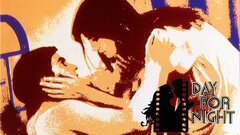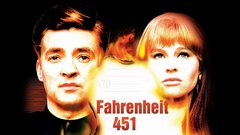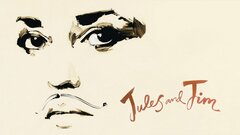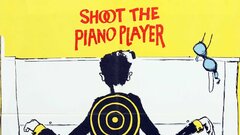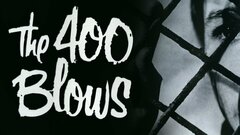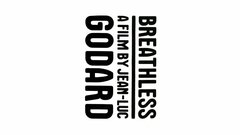His academic demeanor and quiet professionalism masked a childhood scarred by abandonment and anger, but the films of François Truffaut - from his auspicious debut with "The 400 Blows" in 1959 to his stylish Hitchcock homage "Confidentially Yours" in 1983 - told the whole of the story through the protective prism of cinema. As a child, Truffaut took solace in the movie houses of Nazi-occupied Paris, where his psyche was sculpted by cinema. A high school dropout, he founded his own film society at the age of 16. Encouraged by film theorist André Bazin, Truffaut began contributing essays and reviews to the film magazine Cahiers du Cinéma, where he excoriated bourgeois French filmmakers while lauding certain Hollywood studio directors as true auteurs.
Lauded at home alongside such other nouvelle vague figureheads as Jean-Luc Godard, Éric Rohmer, Claude Chabrol, and Jacques Rivette, Truffaut was acclaimed also in the United States, where "Shoot the Piano Player" (1960), "Jules and Jim" (1962) and "Stolen Kisses" (1968) charmed American critics and art house audiences alike and where "Day for Night" (1973) and "The Story of Adele H." (1975) won Academy Awards. Truffaut's death from a brain tumor in 1984 robbed international cinema of one of its great practitioners, as well as a brilliant decoder of complex human emotions both writ large and up close and personal.
François Roland Truffaut was born in Paris, France on Feb. 6, 1932. His unmarried teenage mother, Janine de Monferrand, had concealed her pregnancy from her strict Catholic family until her third trimester, at which point she decamped to the flat of a midwife on the rue de Léon Cogniet, more than an hour's walk from her home in the affluent ninth arrondissement. Before he was three years old, Truffaut rarely saw his mother, having been placed into the care of a wet nurse. In 1933, Janine de Monferrand married Roland Truffaut, an architectural draftsman. Though Truffaut legally recognized his biological son, the newlyweds did not bring their child home. In the spring of 1934, a second child was born but René Truffaut did not survive to his third month. Despondent over the loss, Janine refused to acknowledge her once-illegitimate son. Aware of his parents' existence but denied their love, young François Truffaut stopped eating and was on the verge of starvation when he was taken in by his maternal grandmother, Geneviève de Monferrand, and brought to live in the family's modest apartment on the due Henri Monnier, where a small bed was placed for him in a corner of the family living room.
In the culturally rich but theologically rigid home of his grandfather, Jean de Monferrand, who worked for the Paris newspaper L'Illustration, Truffaut remained a lonely, neglected child whose father busied himself with amateur mountaineering and whose mother engaged in a series of unconcealed love affairs. Thin and sickly and nicknamed "Papillion" (French for "butterfly"), the boy took comfort in daily outings with his grandmother to the neighborhood's crowded bookshops. After France's entry into World War II, Truffaut lived for a short time with his grandmother in Brittany and Binic, while his grandfather, uncle and father were drafted into service. A clever, sensitive and curious youth, Truffaut developed coarse, common habits from his schoolmates and carried these traits into adolescence. In 1942, Geneviève de Monferrand died of pleurisy and Truffaut was placed into the care of his mother, who encouraged the misperception that her son was two years younger and that his birth had occurred well after her 1933 marriage. Living with his parents in a succession of cramped apartments, Truffaut was often left alone for entire weekends. Growing insolent and uncommunicative, he resorted to half-truths and outright lies to settle his score with reality, as one biographer later suggested.
It was at the cinema that Truffaut found his only reliable source of comfort and companionship. By his own estimation, Truffaut saw at least half of the 200 French films made during the Nazi occupation, averaging two or three a week and often revisiting individual films multiple times. After the war, Truffaut indulged in American films that had been banned by the Nazis, particularly Orson Welles' "Citizen Kane" (1941). By age 14, he had dropped out of school and taken a job as a delivery boy for a grain merchant. Promising two-thirds of his salary to his parents, Truffaut supplemented his income through the sale of cinema guides and film stills swiped from the window displays of neighborhood movie houses. Truffaut began attending film society screenings, compiling files of movie directors, and corresponding with the cinema weekly L'Ecran français. In October 1948, he founded his own film society, Cercle Cinémane, which he attempted to keep solvent through thievery.
Hobbled by debts and his crimes exposed after only two months, Truffaut was remanded by his father to a reformatory in Villejuif, where he turned 17 years old. In his first letter home, Truffaut requested jam and his files on Charlie Chaplin and Orson Welles.
After his release, Truffaut went to work for respected film theorist André Bazin. It was through Bazin's mentorship that Truffaut met fellow cineastes Jean-Luc Godard, Eric Rohmer, and Jacques Rivette, with whom he would establish the French New Wave movement. Truffaut did his first film writing for Rohmer's Ciné club du Quartier Latin. Though he enlisted in the French navy in 1950, Truffaut was court-martialed for desertion and spent time in military prison. Upon his release in 1952, he was put to work by Bazin, writing for his new film journal Cahiers du Cinéma. In his six years with Cahiers, Truffaut published nearly 200 essays, reviews, and interviews, and developed a reputation for his merciless attacks on bourgeois French cinema.
In 1955, he made his first film, the silent short "Une visite" ("A Visit"), shot by Rivette on 16mm. His second film, "Les mistons" ("The Kids") (1957), won an award for best director at a festival in Brussels. Shortly after the start of principal photography on his first feature, "Les quatre cents coups" (1958), his mentor Bazin died of leukemia. The biographical "The 400 Blows" would win the Best Director prize at the 1959 Cannes Film Festival and an Academy Award nomination for Best Foreign Language Film in 1960.
Truffaut would work aspects of his life, with varying degrees of fidelity to the facts, into a number of his films, including "Baises volérs" ("Stolen Kisses") (1968), "Domicile conjuga" ("Bed and Board") (1970) and "L'amour en fruite" ("Love on the Run") (1979). For his second feature, Truffaut adapted a novel by American crime writer David Goodis as "Tirez sur le pianist" ("Shoot the Piano Player") (1960), starring singer Charles Aznavour as a cabaret pianist who runs afoul of gangsters. The largely improvised production, a tribute to American crime films, was a failure in France but was later recognized as one of Truffaut's great achievements. Despite the contumely that he had heaped upon formal French filmmakers, Truffaut was the least experimental of the New Wave auteurs and the majority of his films had a conservative, classical approach.
His best films through the remainder of his career include "Jules et Jim" ("Jules and Jim") (1962), "La mariée était en noir" ("The Bride Wore Black") (1968), "La nuit américaine" ("Day for Night") (1973), which won the 1974 Academy Award for Best Foreign Language Film, and "Le dernier métro" ("The Last Metro") (1980), which swept the French César awards in 1981. Even the writer-director's perceived failures, such "Fahrenheit 451" (1966), his English-language adaptation of Ray Bradbury's dystopian science fiction novel (and his first film in color), had their defenders and inspired reams of appreciative critical and academic discourse.
While Truffaut relied on the actor Jean-Pierre Léaud to be his cinematic alter ego between 1959 and 1979, he did appear periodically in his own films, as well as in features by other directors. He cast himself in the lead in "L'enfant sauvage" ("The Wild Child") (1970), "Day for Night" and "La chamber verte" ("The Green Room") (1978) but was likely best known to American moviegoers for playing a U.N. scientist who communicates with extraterrestrial beings through sign language in Steven Spielberg's "Close Encounters of the Third Kind" (1978). Truffaut wrote the original story for Godard's "A bout du soufflé" ("Breathless") (1960), another pillar of the New Wave, and contributed dialogue to the films of his colleagues. In 1967, Truffaut published an influential book of interviews with Alfred Hitchcock; although he considered marriage at one point to Hitchcock's daughter, he married Madeleine Morgenstern, whose family money financed a number of his films. Truffaut fathered two daughters and engaged in love affairs with most his leading ladies. His last film was the stylish but lightweight homage to Hitchcock, "Vivement dimanche" ("Confidentially Yours") (1983). Diagnosed with a brain tumor in 1983, François Truffaut died on Oct. 21, 1984 at the age of 52.
By Richard Harland Smith





























